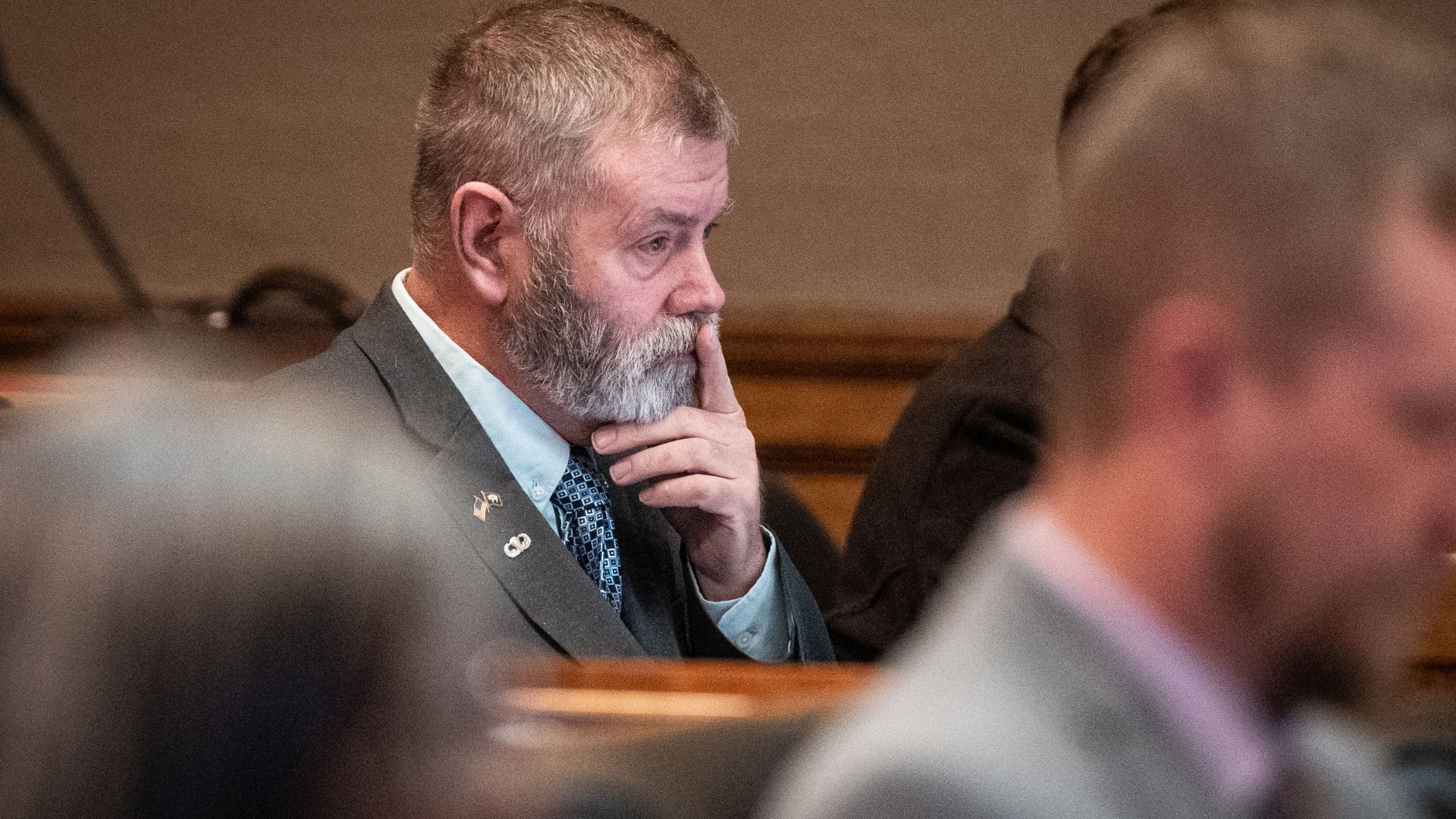Lawmakers define ‘residential property,’ discuss acquisition-based system

co-Chairman Sen. Troy McKeown, R-Gillette, — Photo by Michael Smith
CHEYENNE — Wyoming lawmakers on the Joint Revenue Committee moved Wednesday to statutorily define “residential property” as its own property tax class and give it the lowest assessed tax rate of 8.3%.
Despite a couple of attempts during this year’s legislative session, lawmakers have yet to statutorily define the newly created residential property class approved by voters last November.
The passage of Amendment A in the 2024 general election amended the Wyoming Constitution to separate out residential structures as their own property tax class. It also gave lawmakers the option to create a subclass for owner-occupied residential properties.
The objective of separating out residential structures as their own property tax class is to allow lawmakers to provide targeted relief. Co-Chairman Rep. Tony Locke, R-Casper, successfully moved to draft a bill that defines “residential property” and assesses it at 8.3%, the lowest tax assessment rate available.
During the conversation, co-Chairman Sen. Troy McKeown, R-Gillette, asked the Legislative Service Office’s senior staff attorney if it was possible to change the definition of “fair market value” to when the house was first acquired.
California is the only state in the country to have an acquisition value- based property tax system, and state lawmakers have long discussed the possibility of having a similar system in Wyoming.
Critics of this property tax system argue it could create huge tax inequities across the state.
Senior staff attorney Josh Anderson said this raises potential constitutional concerns under Article 15, Section 11 of the Wyoming Constitution. Subsection C prohibits the Legislature from creating a new class or subclass of property, and Subsection D requires all taxation to be equal and uniform within each class.
However, it depends on how strictly or permissively the language is read, Anderson said.
“I’m just gonna say those are so weak for arguments,” McKeown said. “It is equal, it is fair. It’s just a different way to value it.”
Rep. Robert Wharff, R-Evanston, agreed with McKeown, saying that “we’ve made this system way more complicated than it should be.” Each time the property is sold, it would have a new value, and the next owner would be responsible for the new tax, he said.
“If there’s a tax that’s due on that house, the first obligation you have when you sell it is to pay that tax in full,” Wharff said. “So it’s not like anybody’s going to get away from paying their tax. … To me, it makes a fair and equitable system.”
Rep. Jayme Lien, R-Casper, successfully moved to draft a bill based on House Bill 282 from the recent legislative session, which would shift Wyoming to an acquisition-based residential property tax system.
Locke added a friendly amendment to include a potential constitutional change, if it’s determined by legal experts to be required. The state Board of Equalization has previously testified that this bill is “on its face unconstitutional” and could lead to a lawsuit.
This story was published on June 6, 2025.








